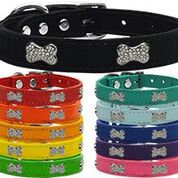The Yorkshire Terrier "Yorkie"
Breed & Care Information

Personality
The Yorkie may be small in size, but they are BIG in personality! They are bold, confident, and smart little puppies that run the house! The Yorkshire Terriers were originally bred as a hunting dog and are known for their intelligence. They are easy to train and easy to spoil!
Size
The Yorkie is available in Tiny Teacup sizes and Toy sizes ranging from 2 lbs to 10 lbs full grown. The smaller the dog the more fragile they can be. Consider a size that works well with your family.
Coat & Color Options
The Yorkie is defined by their beautifully colored coats. As puppies the Yorkie is born with a darker brown and tan color and as it ages the coat develops silver, blue, and gold colors. Biewer Yorkies are a rare breed with a white undercoat not typical of traditional Yorkies. The Yorkie is a hypoallergenic and non-shedding breed that will not leave fur on your clothes or furniture! If you are allergic to dogs, it is unlikely you will be allergic to the Yorkshire Terrier.
Grooming
The Yorkie requires regular grooming. Sticking to a regular grooming schedule for your pet will help making their needs more manageable. Brushing your pets hair every 1-3 days will help fight tangles and mats. As their hair continues to grow a full body groom is needed every 3 to 4 weeks. The shorter their hair is cut the longer it will last in-between grooms. Ask for a “Puppy Cut” to keep their hair short and manageable, but not shaved too short.
The Yorkie has human-like hair and gentle skin that should be washed with a gentle shampoo. TropiClean Shampoo is a gentle shampoo that uses coconut oil and water to cleanse their coat and skin. Yorkies are known to be active and curious. Bathe your Yorkie every week to keep them fresh and clean! The TropiClean Deep Cleaning Shampoo uses raspberry and mango to provide a deep luxurious clean while oatmeal and coconut replenish natural moisture for a coat that’s soft and huggable!

Health

The Yorkie is known to be a very healthy breed and does not normally pass genetic health problems down to new puppies. However, most small breeds do face health concerns related to their size.
One health condition to be aware of is Collapsing Trachea, or closing “windpipe”. Yorkie puppies have tiny tracheas that are very delicate. Always walk your Yorkie with a harness, and not a collar. Yorkies are active and curious and if they get distracted and try to run from you, the leash and harness will help pull from their body instead of a collar pulling from their throat.
Hypoglycemia is also common in small breed dogs. Hypoglycemia is caused by low-blood sugar and is usually the result of a lack in diet. Hypoglycemia is easily preventable by monitoring their feeding schedule. Small puppies should eat every 4 hours to prevent low-blood sugar. A high calorie supplement such as Nutri-Cal is recommended in tiny puppies. Mix Nutrical in your puppies water bowl to maintain strong blood sugar levels throughout the day.
Diet & Nutrition
It is recommended to monitor your Yorkie’s eating habits, especially during puppy stages. Offer your puppy food every 3 to 4 hours to help prevent low blood sugar. They should be eating roughly ¼ cup to ½ cup of dog food per day based on activity level.
A high-quality, small-bite dry dog food is recommended to maintain their shiny coat, to protect their bones, to keep their teeth clean, to be gentle on their digestive system, and to overall keep them healthy. We recommend Royal Canin dry dog food. A nutritional supplement, such as Nutrical, may also be needed in teacup sized puppies to prevent Hypoglycemia.

